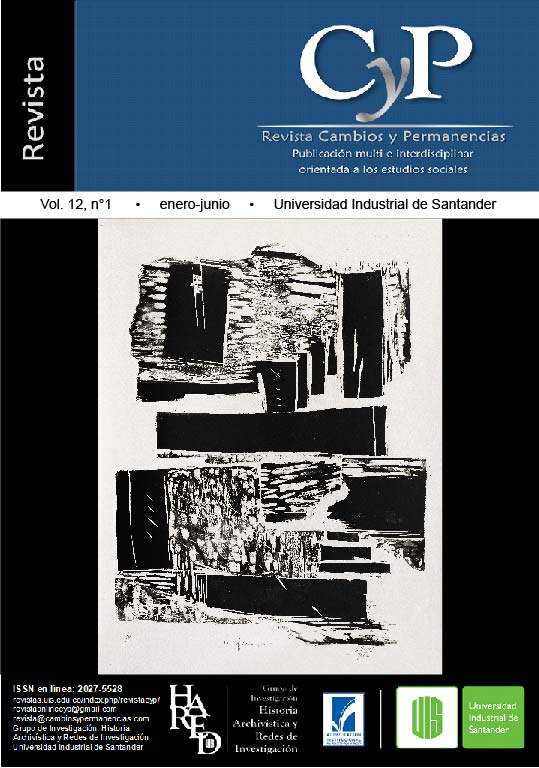Tengo miedo and Canto para mañana: on political violence and silence in two picture books
Published 2021-06-28
Keywords
- representations,
- violence,
- silence,
- children´s literature,
- Chile
- Colombia,
- picture book ...More
How to Cite
Abstract
The aim of this paper is to study the ways of narrating political violence and silence in Chilean and Colombian picture-books. With the help of two examples, Tengo miedo (2012) by Ivar da Coll and Canto para mañana (2013) by Calú López, I will analyze the different ways of representing the instances and actors of violence in order to subsequently define how and in what context silence about violence is situated. The results show that the picture-book, on the one hand, allows children to reflect on ethical dilemmas and complex social realities thanks to the dialogue between textual and visual language and, on the other hand, establishes the basis for them to actively participate in the reconstruction of historical realities and in the understanding and re-signification of violence and silence.
Downloads
References
Appadurai, A. (2009). Géographie de la colère. La violence à l’âge de la globalisation. Paris, France: Éditions Payot & Rivages.
Arendt, H. (2006). Sobre la violencia. Madrid, España: Alianza Editorial.
Arendt, H. (2020). De la révolution. Barcelona, España: Éditions Gallimard.
Benjamin, W. (1987). Rastelli raconte… et autres récits. Paris, France: Éditions du Seuil.
Da Coll, I. (2015). Historias de Eusebio. Bogotá D.C., Colombia: Babel Libros.
Da Coll, I. (2012). Tengo miedo. Bogotá D.C., Colombia: Babel Libros.
Gahona Muñoz, Y. (2009). Reparación por violaciones de derechos humanos (Tesis de maestría). Universidad de Chile, Santiago de Chile. Recuperado de http://repositorio.uchile.cl/handle/2250/105763
Galtung, J. (2003). Paz por medios pacíficos. Paz y conflicto, desarrollo y civilización. España: Red Gernika 7 / Bakeaz & Gernika Gogoratuz.
Grupo de Memoria Histórica (GMS). (2013). ¡BASTA YA! Colombia: Memorias de guerra y dignidad. Bogotá, Colombia: Imprenta Nacional.
Le Breton, D. (1997). Du silence. Paris, France: Éditions Métailié.
López, C. (2013). Canto para mañana. Santiago, Chile: Ocho Libros Editores.
Lúnecke Reyes, G. (2000). Violencia Política (Violencia Política en Chile. 1983-1986). Santiago, Chile: Arzobispado de Santiago fundación documentación y archivo de la vicaría de la solidaridad.
Organización Panamericana de la Salud, Oficina Regional para las Américas de la Organización Mundial de la Salud. (2002). Informe mundial sobre la violencia y la salud: resumen. Washington D.C., EE.UU.
Reyes, R. (2017). Enmudecer, acallar, guardar. Violencia y silencio en el México contemporáneo. En C. De Gamboa & M. Uribe (eds.), Los silencios de la guerra (pp. 255-295). Bogotá, Colombia: Editorial Universidad del Rosario.
Rossel, J. (2001). La literatura infantil: Un oficio de centauros y sirenas. Buenos Aires, Argentina: Lugar Editorial.
Uribe Alarcón, M. (2004). Antropología de la inhumanidad: Un ensayo interpretativo sobre el terror en Colombia. Colombia: Grupo Editorial Norma.
Van Der Linden, S. (2008). Lire / analyser l’album. In C. Connan-Pintando, F. Gaiotti & B. Polou (Eds.), L’album contemporain pour la jeunesse : Nouvelles formes, nouveaux acteurs? Presses Universitaires de Bordeaux, Francia.

